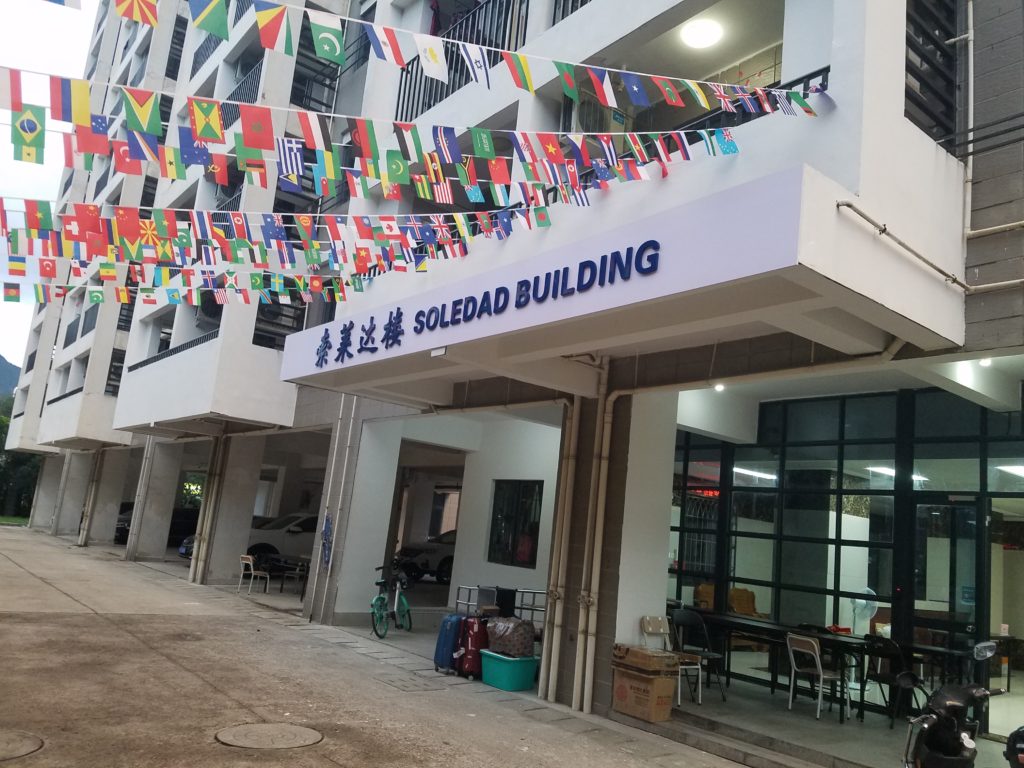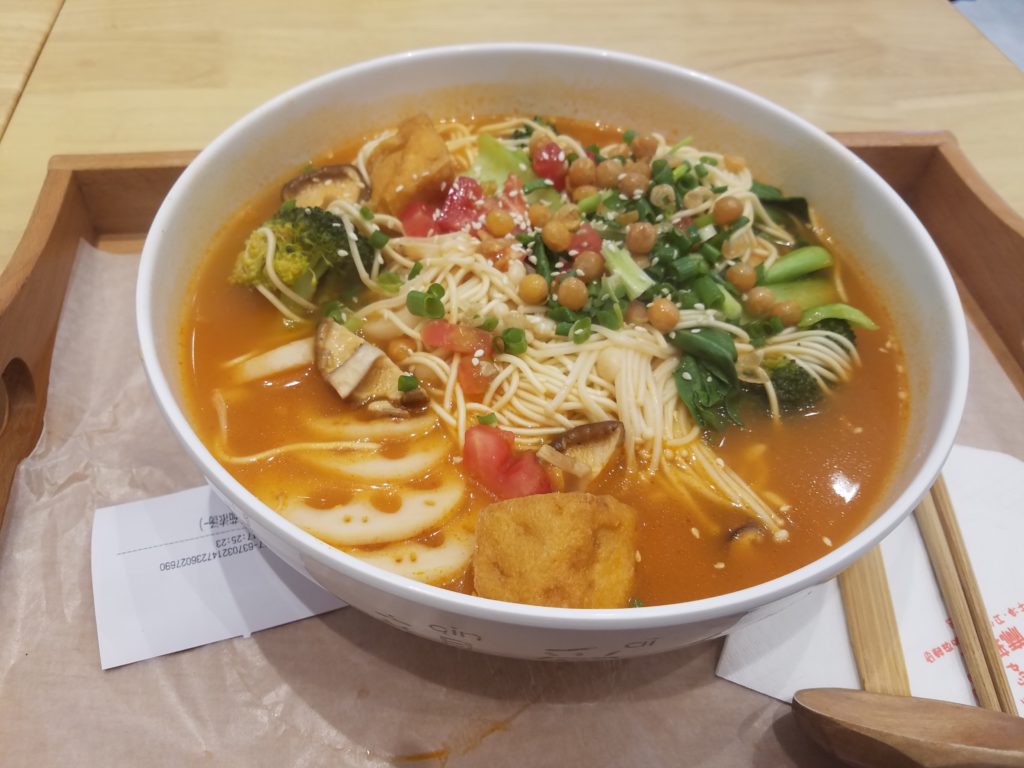A hectic day indeed.
Not having keys to my dorm, I decided to stick around until check-in began so that I could move my luggage to my real room (which does have running water, electricity, and wifi). My new room, on the eighth floor rather than the first, takes a bit longer to reach, but also provides a breathtaking view of misty hills in the distance, the bustling street below, and apparently a military zone that we were told to not take pictures of.

But that’s about as fancy as it gets.
The school tends to assign international students to dorms based on their country of origin, so I am now in a suite of potentially four people (although I am the only US national to check in today). There are probably more, but we’ll see how the situation goes. If the dorm fills up, I’ll have a roommate (although I’d prefer having the suite to myself). I like this room a lot more because the beds are a lot stiffer. Rather than having a mattress, they’re composed of a wooden board with a foam pad on top.
Overall, check-in was a terribly arduous process that involved dozens of sweaty college students waiting in stuffy rooms for about five hours. From visa checks to fee payments to a Chinese placement test, the entire process included lots of waiting in line. The vast majority of us didn’t have breakfast, making things even worse. However, at around noon—three hours into the process—one of the staff members said that half of us should get lunch since the wait would be pointless. I happily obliged.
With a short lunch break, I walked up to a steamed bun vendor—except he had sold out. The shop next to him was a fried chicken/burger joint: not good for vegetarian food. Thirsty and hot, I saw a boba shop and buzzed over.
With a refreshing elixir in my hand, I kept searching for food. None of the international students could eat at the dining halls yet since we didn’t have a meal card or Alipay/WeChat pay. With just cash, our options were limited.
I eventually settled on some sweet bread from the grocery store and came back to the dorm to complete my check-in. After finishing the five hour ordeal, I went out to shop for necessities.
First, I needed toilet paper. Second, I needed drinking water, since the tap water is unsafe.
Having gone to a small liberal arts college, I hadn’t realized how expansive some college campuses are. FJNU, with a student population of 23,000, boasts 7 dining halls (although I suppose the 5Cs also boasts 7 dining halls) and an entire street of shops selling everything from fresh fruit, electronics, to daily necessities.
I ended up getting the toilet paper and drinking water, but also got slippers for the shower, soy milk, and a water boiler because how else am I going to make tea and instant noodles? Also, I can use it to sterilize the water after filtering it.
After getting settled in, the hunger of not having a decent meal in 24 hours bit me. My last “meal” if you could call it one was the pasta I had on the plane a day ago. Famished, I started walking towards the row of shops just outside of campus.
I had found a place online that looked promising, but I didn’t have to walk all the way there. Just outside of the school gate, I came across a fast-food chain that I suppose is best explained as a Mongolian grill procedure, but with soup.
I grabbed 1.3 kilograms of veggies and mushrooms, then requested a tomato-based broth. Having subsisted on heavy doses of sugar every few hours for the past day, this nutrition-laden meal was spectacular, and it only cost me around $4!
